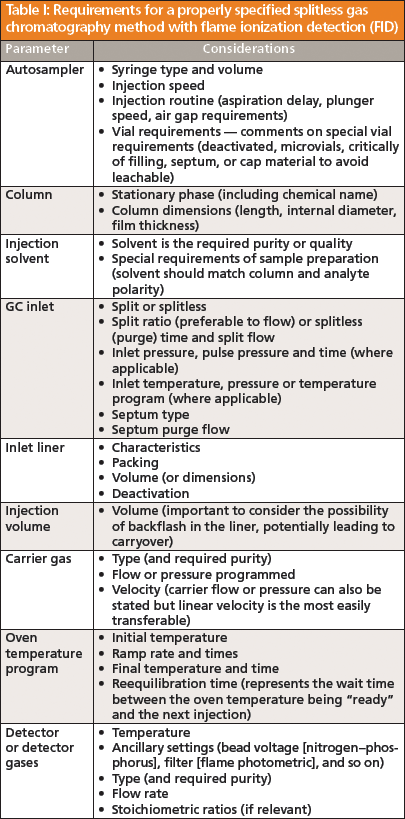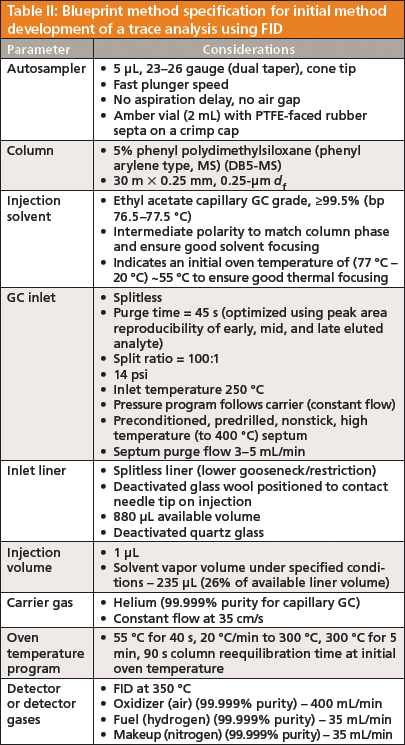Developing Better GC Methods — A Blueprint
LCGC North America
To obtain sensitive, robust, and reproducible gas chromatography (GC) methods, each stage of the chromatographic process needs to be carefully considered and optimized. It is also important to record and report as much detail within the method specification so that the method can be reproduced between operators, instruments, and laboratories. Table I represents a "blueprint" method specification with all of the information that is necessary to faithfully specify and reproduce a split–splitless GC method.
To obtain sensitive, robust, and reproducible gas chromatography (GC) methods, each stage of the chromatographic process needs to be carefully considered and optimized. It is also important to record and report as much detail within the method specification so that the method can be reproduced between operators, instruments, and laboratories. Table I represents a "blueprint" method specification with all of the information that is necessary to faithfully specify and reproduce a split–splitless GC method. Table II provides a blueprint starting point for the method development of a sample with unknown composition, but known to contain "trace" target analytes. Even if you are not developing methods - check the blueprint specifications against your GC methods. Do your methods contain all of the necessary details?

Table I: Requirements for a properly specified splitless gas chromatography method with flame ionization detection (FID)

Table II: Blueprint method specification for initial method development of a trace analysis using FID

Regulatory Deadlines and Supply Chain Challenges Take Center Stage in Nitrosamine Discussion
April 10th 2025During an LCGC International peer exchange, Aloka Srinivasan, Mayank Bhanti, and Amber Burch discussed the regulatory deadlines and supply chain challenges that come with nitrosamine analysis.










